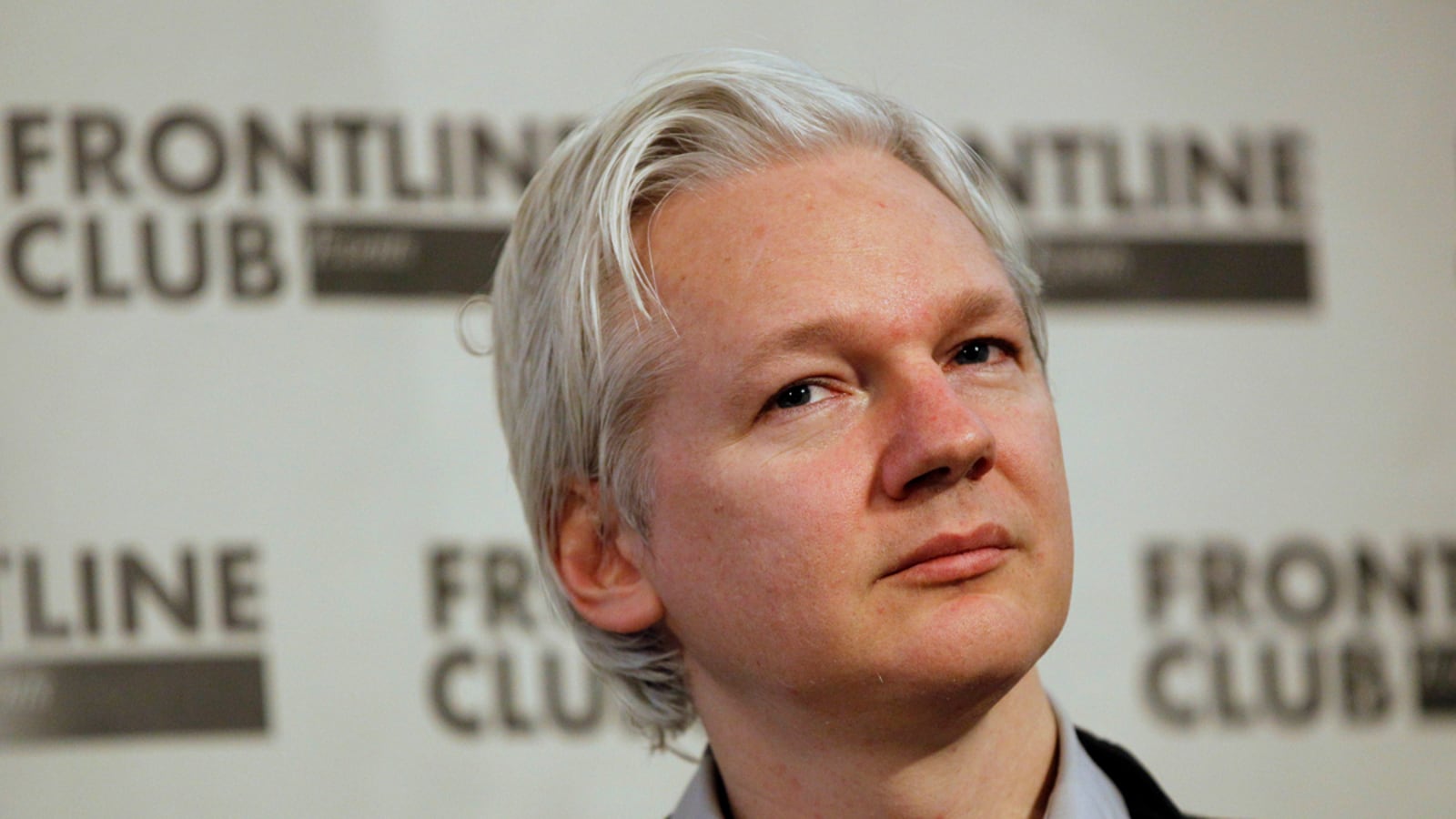People all over Washington, or at least in the intelligence community, are anxiously asking themselves two things: did I ever email Stratfor, and if I did, what did I say? The U.S. intelligence firm, known as a “shadow CIA,” is the latest victim of WikiLeaks, which is publishing a vast trove of its email.
In a broader sense, however, many who work in the intelligence community believe that the release of the Stratfor email is a travesty. Hackers apparently obtained material that had been written by analysts and handed the correspondence over to WikiLeaks. “There’s not even an attempt to justify it,” said former CIA officer Paul Pillar, now a visiting professor at Georgetown University. “It’s just, ‘We got it, and we’re hackers.’ We should treat that with the contempt it deserves.”
One senior law-enforcement official, who requested anonymity because he is not authorized to speak to the press, said he sympathizes with the people who work for Stratfor. He and his colleagues recently faced a similar situation in his office, he said: journalists published sensitive documents from his department, revealing the names of individuals who work in the intelligence field “and potentially putting them in harm’s way.”
The release of the Stratfor email, he said, is yet another reminder of the danger of writing things down. “It makes you—I wouldn’t say more paranoid, but more cautious,” he said. He and other government officials know what email can reveal and also how it can make the author look. For even those who keep secrets for a living—“I’m not used to sharing,” one former CIA deputy director tells me—slip up in email.
The Statfor people, for example, overshared: in one email message, they compare co-workers to Kremlin officials. In another, they discuss “Israeli commandos.”
Diplomats have also landed in hot water for writing candid assessments of foreign officials and showing a certain recklessness in their writing.

That was certainly the case with the Statfor analysts, and not everyone has shown compassion for them. Gene Poteat, a retired CIA scientific intelligence officer, called the people who worked for the intelligence firm hopelessly indiscreet. “They were a disaster waiting to happen,” he said.
So far, the people who work for the CIA have maintained discretion, and their firewall, and have not been exposed to a Wiki-type scandal. “The CIA has strong, longstanding policies and procedures to protect classified information that are designed to evolve with changes in technology, in potential new threats, and in the increasing volume of data that our agency confronts,” said CIA spokesman Preston Golson.
Golson wrote me a professional, carefully vetted email message. Not everyone does, and that is part of the problem. “Email induces a sense of confidence and intimacy,” said Richard Barrett, coordinator of the al Qaeda–Taliban monitoring team of the United Nations, and who described himself as cautious in what he writes. Yet many people blurt things out in email, and for this reason almost any organization, even media-friendly ones, can be made to look bad.
“I bet if someone hacked Amnesty International, there’d probably be some shit that Amnesty doesn’t want out there,” said Art Keller, a former CIA case officer and author of a forthcoming novel, Hollow Strength.
Some people in the intelligence community say they are trying to beef up their security in the wake of the Stratfor scandal, but nearly everyone agrees that the best way to keep things safe is an old-fashioned one: watch what you write. Then you can “make sure it doesn’t walk out the door or get hacked,” said the senior law-enforcement official. These days, with the Stratfor correspondence revealed, he said, “You sort of go into lockdown mode.”





